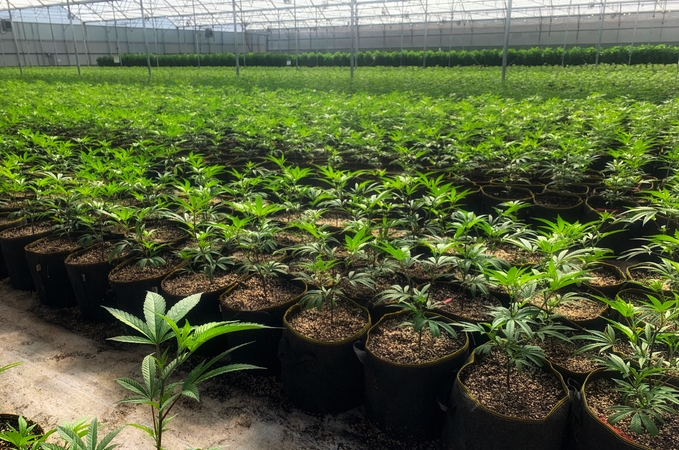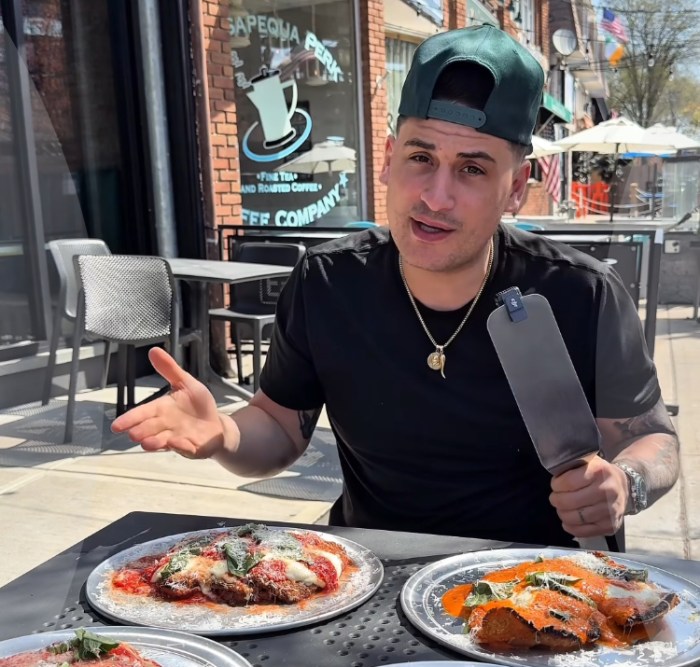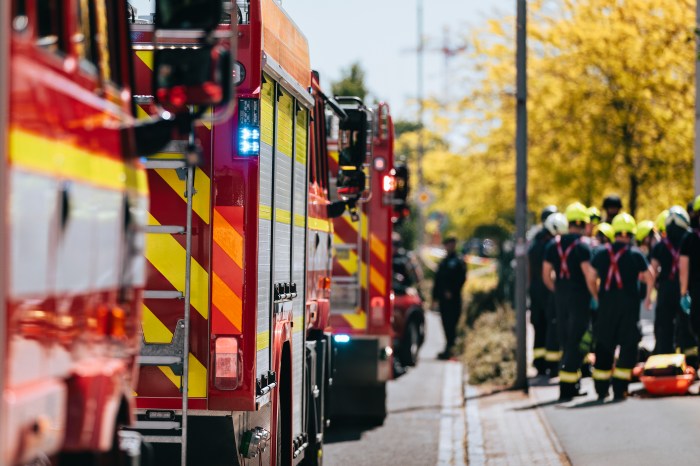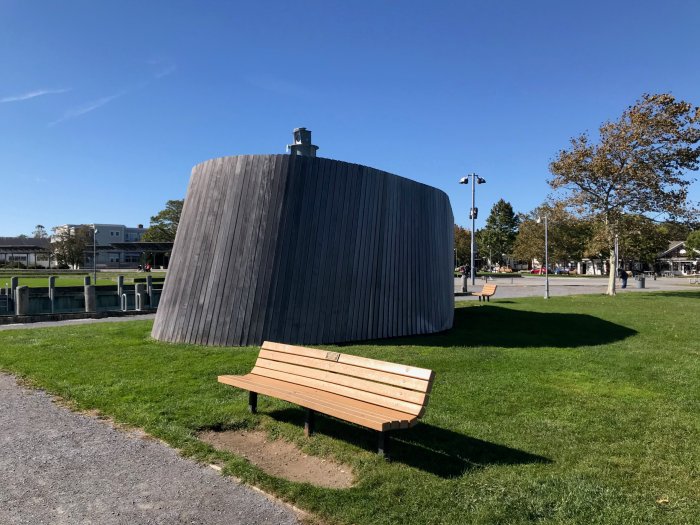Three Suffolk County agricultural companies are among 52 across New York State to be recently dealt the first-ever licenses allowing the trailblazers to grow newly legalized recreational marijuana.
The local trio of potential pot planters stirring area buzz are Riverhead-based Plant Connection, East End Flower Farm — which has fields in Orient, Mattituck, East Moriches and Holtsville — and Route 27 Hopyard, an outfit out of Center Moriches. All three rolled through the first round of state Cannabis Control Board (CCB) approvals, but still need to hash out the details before they can hit the fields.
“I’m very happy that the state decided to reward people that did take a hit,” Marcos Ribeiro of East End Flower Farm, said of his prior experience growing hemp, a cannabis plant that has far less of the psychoactive element THC than marijuana. “The 2018 farm bill legalized hemp, so everybody and their mom grew it and the market came crashing down … there was way too much oversupply.”
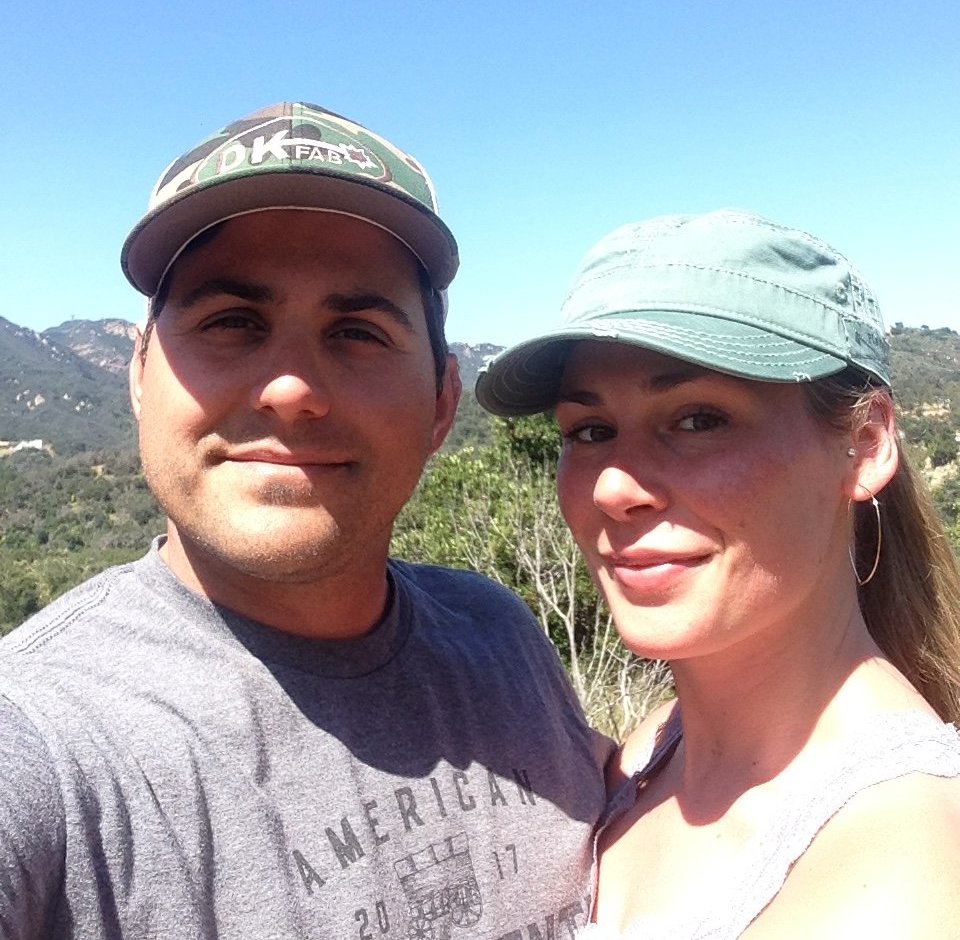
The Empire State last year legalized consumption, possession, sale and cultivation of cannabis for adults over the age of 21. Most towns and villages on Long Island nipped reefer reform in the bud by passing legislation opting out of allowing pot shops and cannabis cafés within their borders, except for the towns of Riverhead, Southampton, Brookhaven and Babylon. But the retail opt-out laws don’t blunt state-approved agronomists’ ability to grow a wholesale stash to supply weed retailers elsewhere.
“Marijuana is considered a bona fide agricultural product in New York and towns have no authority to regulate or ban growing,” Southold Town Supervisor Scott Russell said. “That rests solely with (the state).”
The state has would-be ganja growers who paid the $2,000 application fee zig-zagging through a heady stack of paperwork. The farmers — all of whom met the prerequisite of previously growing hemp — have 30 days to submit plans, ensure 24-hour security, undergo inspections, and show financing, among other formalities. Even if the plans don’t go up in smoke, the farmers will only be allowed to grow an acre of weed to start and won’t be allowed to also get into the retail market — so no pot farm stands, for now. “We’ve been working hard to establish this industry, and now, New York farmers will be able to plant seeds in our fertile ground,” CCB Chair Tremaine Wright said after awarding the conditional cultivator licenses at the board’s April 14 meeting. “Growing season waits for no one, and we’re moving as quickly as possible to help our local farmers take full advantage of it this spring.”
Another 100 applicants were jointly passed over for licenses this time, but the CCB plans to deal out more “on a rolling basis,” officials said. But not everyone was as cushy on the idea of pot farms cropping up on the East End.
“I have no doubt large-scaled recreational commercial cannabis cultivation farms, sadly, may conceivably replace our existing produce producing farms, one of our most valuable assets,” said Riverhead Town Supervisor Yvette Aguiar. “Case in point, a bushel of corn on the East End may cost approximately $100 this year. Conversely, a bushel of marijuana will generate $3,500. No doubt, fiscally, farms producing recreational commercial cannabis cultivation is by far more appealing than produce-generating farms.”
The pot croppers maintain it may be a few seasons for the industry to truly take root.
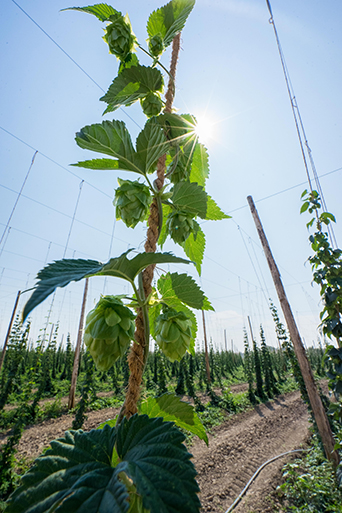
“In my experience, depending upon your variety, with CBD hemp, I was able to attain 750 pounds … on average” per acre, Ribeiro, a first-generation Portuguese immigrant whose parents were farmers, said while planting his 20-acre hop farm. He noted that some hemp plots produced more than others.
“There’s potential to grow 1,000 pounds,” said Ribeiro, whose wife Kathleen Long-Ribeiro owns the operation. “So if you look at the total, there were 52 licenses that were given out. … That would be 52 acres, 52,000 pounds if everyone grew 1,000 pounds, which they won’t. It’s really not that much cannabis.”
State law allows individuals to possess up to three ounces. Fifty-two thousand pounds, or 26 tons, of pot would be enough to supply more than 277,000 people with the maximum amount, or enough to fully stock the entire population of the East End twice. New York City residents alone consume about triple that — 77 tons annually — according to the United Nations World Drug Report 2017. That doesn’t account for all of the state’s more than 13 million adults over 21.
Besides hemp, the three local farmers already grow a variety of crops. As the name suggests, East End Flower Farm’s bread and butter is sunflowers, although they also grow some produce and grains. All three also grow hops to supply the region’s booming craft beer industry.

Anthony Caggiano, who co-owns Plant Connection and Jamesport Farm Brewery with his wife Melissa, said neighbors need not worry about pot farms making the entire North Fork reek like a college dorm.
“Our past three years of hemp, we grew a lot — much, much more than we’re gonna grow in marijuana,” he said while taking a break from plowing his fields to plant barley. “If nobody smelled it then, you’re certainly not gonna smell it now.”
Caggiano, the immediate past president of the New York State Nursery and Landscape Association, said that he didn’t have one complaint despite growing 37,000 hemp plants on 20 acres.
Route 27 Hopyard could not be reached for comment, but was quoted speaking highly of pot’s economic potential.
“It’s a very big deal,” Brian Andoos, co-partner of the farm, told the New York Post. “I’m happy the license went to a small farm like ours. … We’ll bring in more employees. It will be good for all.”
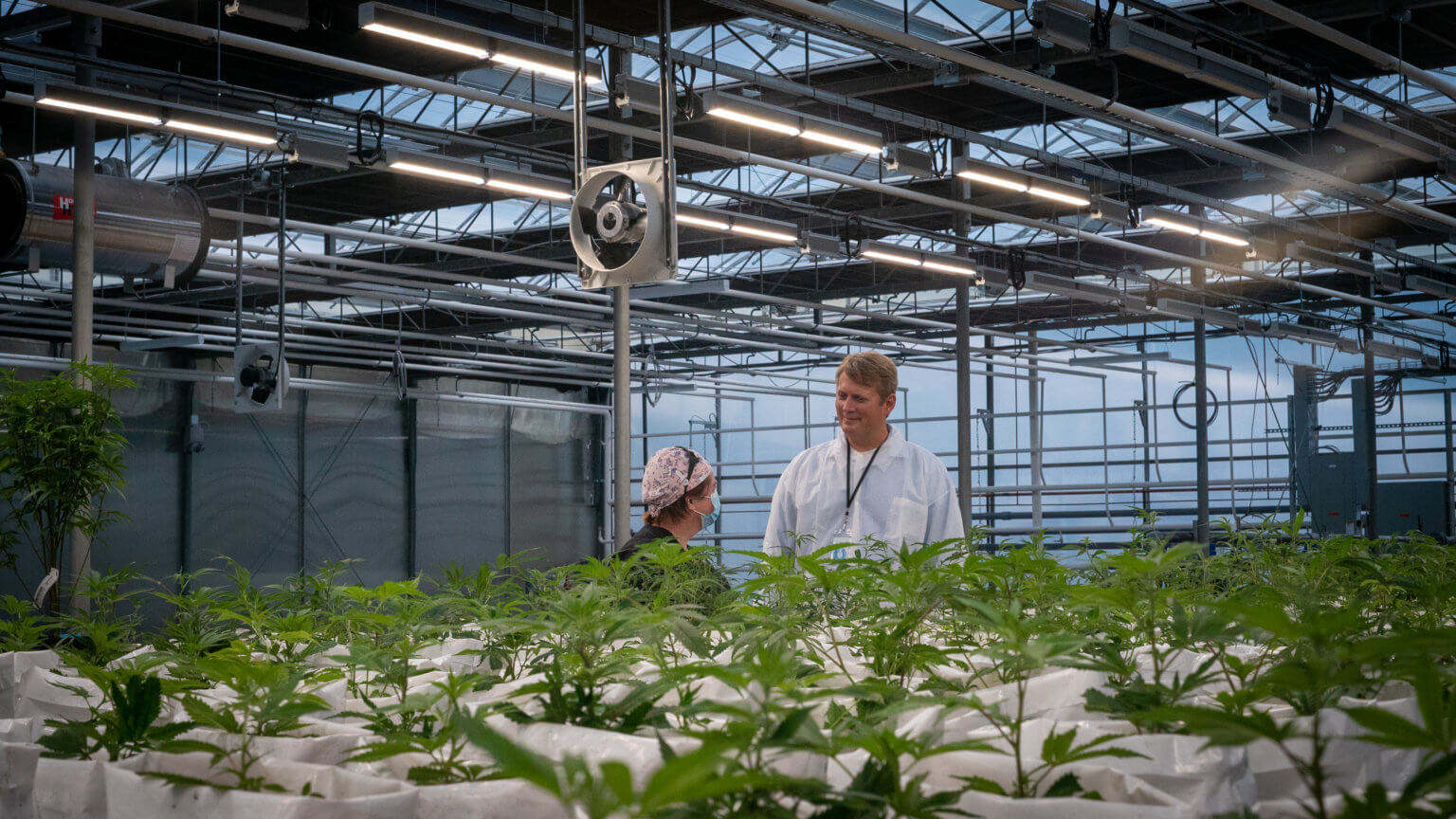
It won’t be the first time marijuana was grown on the East End. Columbia Care, one the largest cultivators, manufacturers and providers of cannabis products in the country, which opened Suffolk County’s first medical marijuana dispensary in Riverhead back in 2016, entered into a $42 million deal to purchase 34 acres at Van de Wetering Greenhouses in Jamesport last spring, the first major marijuana-related real estate purchase on the East End since the state legalized adult-use cannabis in March 2021. Earlier this month, the company announced that Chicago-based Cresco Labs will acquire it as part of a stock merger valued at $2 billion, Behind The Hedges reported.
The state’s pot farm licensing plan, dubbed the Seeding Opportunity Initiative, comes as the state Office of Cannabis Management is also exploring how to make it easier for those with a prescription for medical cannabis to grow their own plants. Gov. Kathy Hochul invoked revolutionary times in celebrating cannabis cultivation being expedited.
“New York’s farms have been the backbone of our state’s economy since before the American Revolution, and now, New York’s farms will be at the center of the most equitable cannabis industry in the nation,” the governor said. “I’m proud of the work the Office of Cannabis Management and the Cannabis Control Board are doing to get adult-use cannabis sales up and running as fast as possible without compromising our mission to uplift communities and individuals most impacted by the past century of cannabis prohibition.”
-With Taylor K. Vecsey
This story first appeared on DansPapers.com.




